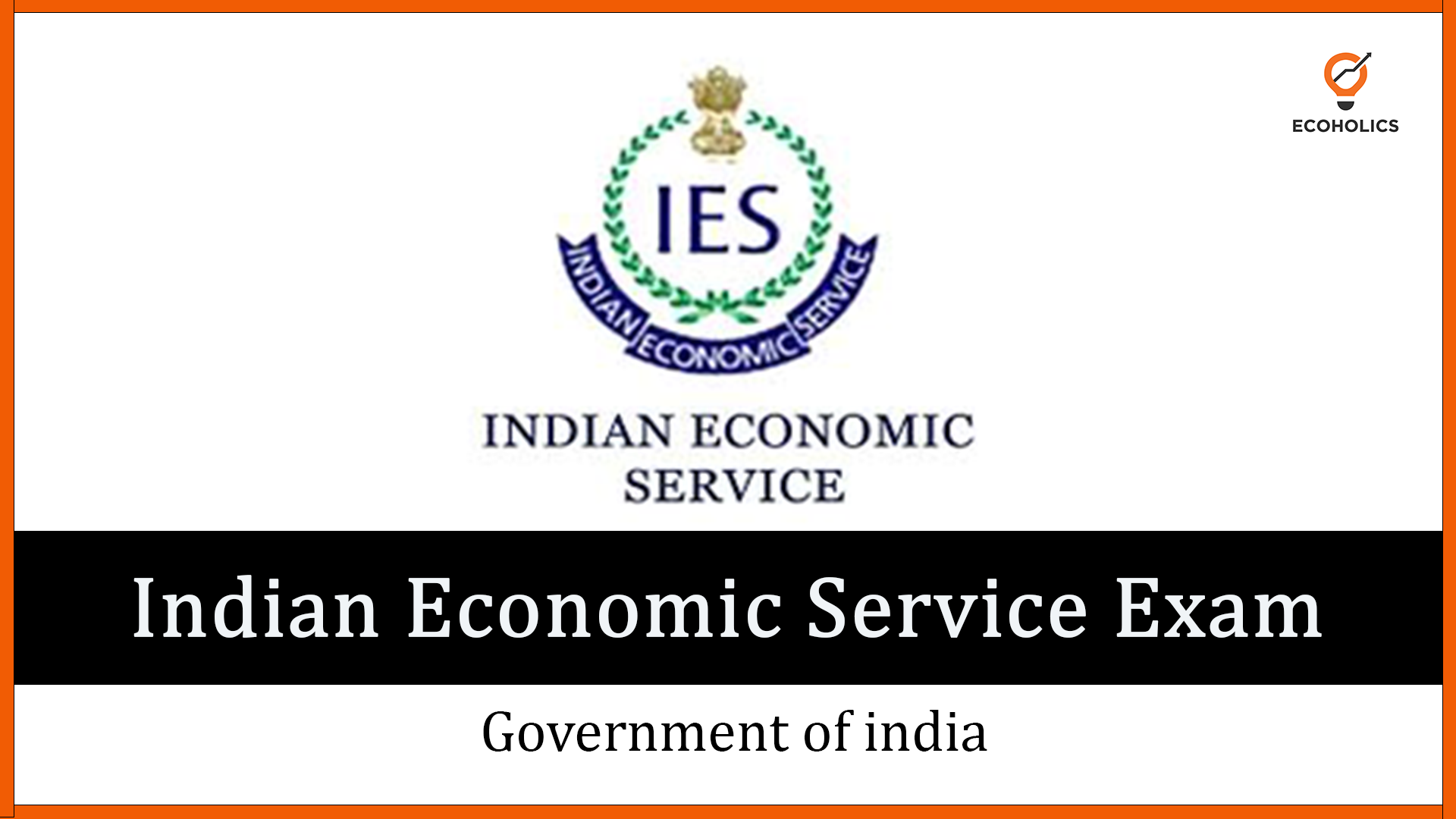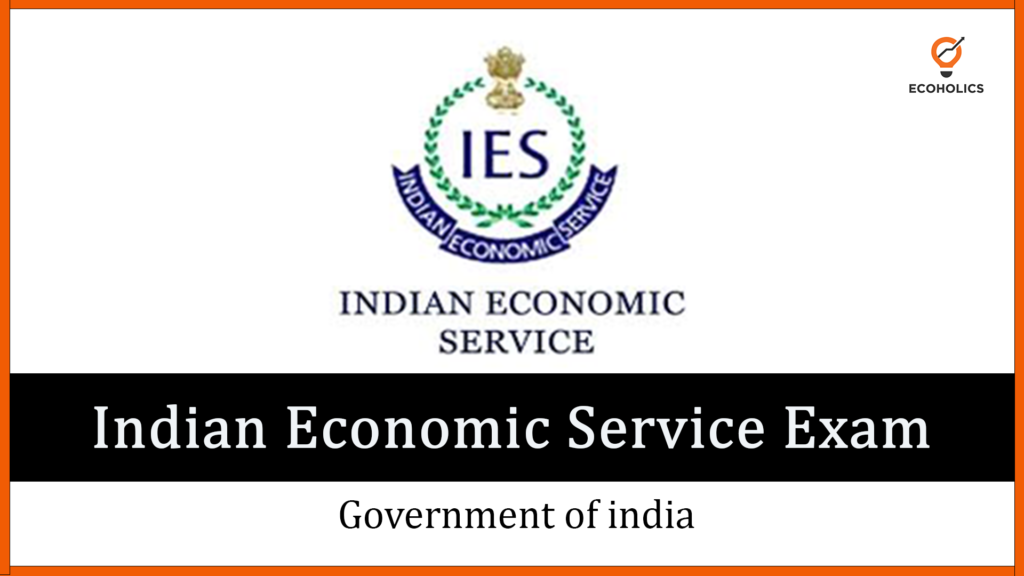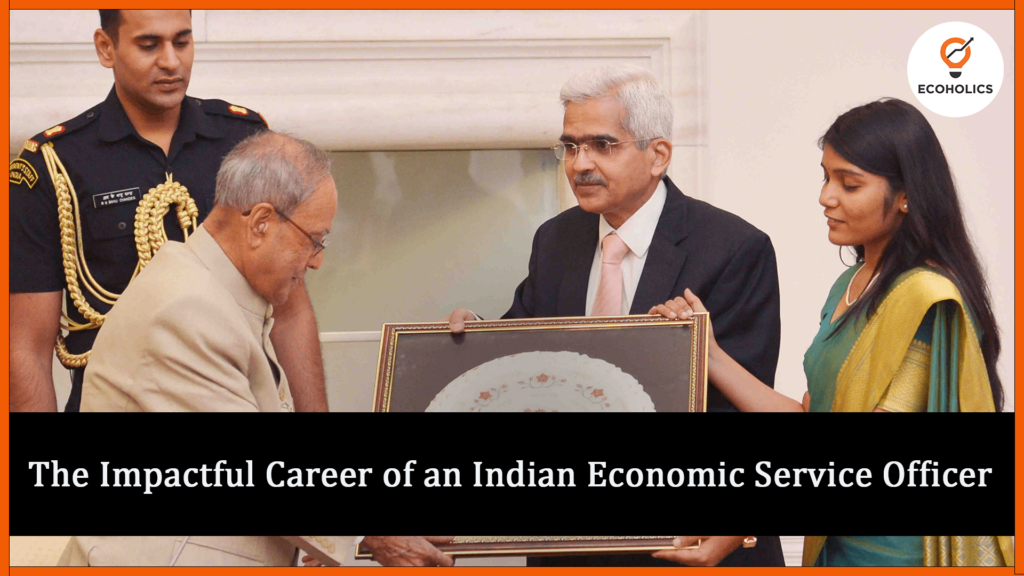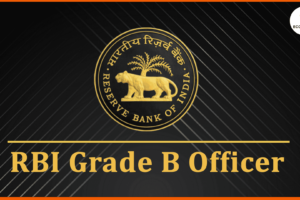
Why Should You Prepare for the Indian Economic Service Exam?
- The Indian Economic Service cadre was created to boost the Indian economy.
- IES Officers have an exciting yet challenging career while reshaping the Indian economy.
Becoming an IES Officer might be a dream of many, but why should you prepare for the Indian Economic Service Exam? Why is this exam so prestigious? What are its perks and challenges? Why do lakhs of students work hard every year to crack the Union Public Service Commission’s Indian Economic Service exam? Let’s try to answer all these questions.

There’s an exciting history of the IES examination. The Indian Economic Service Cadre was envisioned by India’s first prime minister, Pt. Jawahar Lal Nehru in 1961. It finally came into existence in 1964, and since then, the prestigious examination has selected brilliant minds to serve for the betterment of the Indian economy.
Related Read: Indian Economic Service Syllabus, Eligibility and Exam Pattern
The Impactful Career of an Indian Economic Service Officer
The Indian Economic Service (IES) Officers are believed to be the backbone of the Indian Economy. They play an essential role in shaping the country’s economic future by providing expert advice, formulating comprehensive economic policies, and ensuring they are implemented strategically at the grassroots level.

How does an IES Officer Shape the Future of the Indian economy?
Skilled Indian Economic Service Officers play a significant role in shaping the Indian Economy. A crucial aspect of their work profile includes policy formulation and implementation, gaining sectoral expertise, and boosting international relations.
One of the main jobs of an IES Officer is to analyse mountains of data, conduct extensive research, and advise policymakers on fiscal policy, trade, industrial development, social welfare, etc. Also, contribute to drafting the Economic Survey, Five Year Plans, and other related documents that guide the ascending trajectory of the Indian Economy.
IES Officers are also involved in implementing crucial government initiatives. These range from microfinance schemes to infrastructure projects. Their involvement in the scenario ensures the policies are translated and implemented into tangible outcomes at the grassroots level.
Indian Economic Service officers work across various challenging sectors like agriculture, finance, energy, and public health. Their expertise plays a crucial role in designing and implementing sector-specific reforms and programs, potentially boosting productivity and growth across each sector. They also represent India on many international economic forums and negotiations, advocate trade deals, attract foreign investments and actively participate in global economic governance.
How do these IES Officers tackle crucial challenges?
The cadre of Indian Economic Service Officers is designed and implemented for various poverty alleviation programs. The scope includes rural development initiatives and skill development schemes while facilitating financial inclusion. IES officers actively contribute to managing the government’s budget, suggesting measures to optimise revenue generation, expenditure control and strategic management of public debts.
Interestingly, IES officers are actively involved in promoting sustainable development practices. Some of these initiatives include addressing climate change, thereby ensuring environmental protection through strategic policy formulations and program implementations.
Why are IES Officers Believed to be at the Forefront of Change?
Indian Economic Service Officers play a significant role in integrating India with the global economy. They actively negotiate trade agreements and facilitate foreign investment. This dramatically helps the nations adapt to the ever-evolving global economic landscape.
Leveraging their expertise, they understand the impact of technology on the economy. While actively contributing to formulating policies that encourage innovation and promote digital transformation. They also design and implement initiatives that foster entrepreneurship, create jobs and promote inclusive growth. It dramatically helps address unemployment and empowers individuals to contribute to the economy.
The Rewarding and Challenging Work Environment of an IES Officer
The work environment of an Indian Economic Service (IES) Officer offers a unique blend of intellectual stimulus, diverse experiences and a competitive reward system. Along with these perks, the job profile also presents its own set of challenges and opportunities. The cadre provides intellectual stimulation, offers a diverse work environment, and facilitates competitive salaries and benefits.

Skills Acquired During the Tenure
Leveraging their hard-earned problem-solving and analytical skills, IES Officers constantly analyse economic data, research complex issues, and provide solutions to crucial real-world challenges. But to get this done, these officers must hone critical thinking and strong analytical skills and should possess the ability to translate theory into practical solutions.
It’s a well-known fact that the economic landscape is ever-changing and ever-evolving, and this forces the IES Officers to stay updated on the current trends, emerging technologies, and policy changes. The IES cadre demands continuous learning and adaptation for effective performance. By skillfully contributing to policy formulation and research, these officers truly reshape the Indian economy.
The Diverse Work Environment of Indian Economic Service Officers
As discussed, IES Officers work across many diverse sectors, including agriculture, finance, infrastructure and international trade. Broadening exposure to different industries, challenges, and stakeholders facilitates a dynamic and enriched experience. Right from policy formulation to program implementation, from budget analysis to international negotiations, IES Officers undertake broader responsibilities to help reshape the Indian economy.
However, during their tenure as an Indian Economic Service officer, they must bear regular transfers across different states and departments. This facilitates exposure to diverse work cultures, perspectives, and local contexts. Furthermore, frequent transfers upgrade the knowledge and experience of the officers, making them even more valuable to the economy.
IES Salary & Exciting Benefits
An IES Officer salary is also lucrative, and they get benefits and perks that boost their seniority and experience. The salary bifurcation as per their grade/designation, with the respective pay structure, is discussed in the table below.
| Salary Bifurcation of IES Officers | ||
| Sr. No. | Grade/ Designation | Pay Structure |
| 1 | Higher Administrative Grade + (HAG +)/ Principal Adviser (Apex) | ₹ 80,000 (fixed) |
| 2 | Higher Administrative Grade (HAG)/ Senior Economic AdviserSenior Adviser | ₹ 67,000 (annual increment @ 3%)₹ 79,000 |
| 3 | Senior Administrative Grade (SAG)Economic AdviserAdviser | Pay Band – 4: ₹ 37,400 – 67,000 Plus Grade Pay: ₹ 10,000 |
| 4 | Junior Administrative Grade (JAG)Joint DirectorDeputy Economic Advisor {including Non-Functional Selection Grade (NFSG)/ Director/ Additional Economic Adviser} | Pay Band – 3: ₹ 15,600 – 39,100 Plus Grade Pay: ₹ 7,600 {Pay Band – 4: ₹37,400 – 67,000 Plus Grade Pay: ₹ 8,700} |
| 5 | Senior Time Scale (STS)Deputy DirectorAssistant Economic AdviserSenior Research Officer | Pay Band – 3: ₹ 15,600 – 39,100 Plus Grade Pay: ₹ 6,600 |
| 6 | Junior Time Scale (JTS)Assistant DirectorResearch Officer | Pay Band – 3: ₹ 15,600 |
The salary ensures financial stability and can facilitate a comfortable lifestyle. Apart from this, these IES Officers have a structured career path with regular promotions and salary increases, further cementing their financial growth throughout their careers. Officers also enjoy benefits that include subsidised housing, medical facilities, travel allowances, house rent allowance, dearness allowances, retirement benefits, etc, all designed to enhance their overall well-being.
The Indian Economic Service Cadere: Avenue for Personal Growth Indian Economic Service Exam
The career path of an Indian Economic Service Officer goes beyond the scope of professional accomplishments and contributes towards the development of the Indian Economy. It can also be considered a potent catalyst for comprehensive personal growth. It helps develop valuable skills, gain leadership experience, and provide an opportunity to make a substantial difference in the economy. Indian Economic Service Exam
Valuable Skills are Developed Throughout the Tenure Indian Economic Service Exam
After clearing the examination, they undergo intensive economics training at the Institute of Economic Growth, Delhi. Through on-the-job training, specialisation courses and research opportunities, IES Officers gain comprehensive knowledge of Economics, Public Policy, Finance, and other fields.
They also gain considerable soft skills, including communication, negotiation, interpersonal skills, and leadership. They must interact with diverse stakeholders, including government officials, industry leaders, and communities. Refinement of these soft skills is significant for effective policy formulation and program implementation. IES officers must analyse mountains of data, identify trends and devise solutions to many real-world economic problems.
Optimal Leadership Experience Indian Economic Service Exam
IES Officers are entrusted with significant responsibilities, asking them to manage projects, teams and budgets at an early age. This exposure to leadership instills confidence and decision-making abilities and boosts strategic thinking. While progressing through their careers, officers manage increasingly complex projects and diverse teams. Thereby cultivating the ability to motivate, build consensus and navigate challenging situations effectively.
The cadre also provides opportunities for mentorship from experienced officers, enhancing both personal and professional growth. This guidance mechanism helps them navigate the challenges faced during their tenure and gain holistic perspectives while developing leadership techniques.
How does an IES Officer make significant contributions towards the Indian Economy? Indian Economic Service Exam
IES officers help implement economic policies and programs directly impacting communities and individuals. These officers are sitting in the front row, witnessing positive change, improved livelihood, infrastructure development, and economic growth. They develop a sense of purpose and responsibility while contributing towards drafting policies and reforms that positively impact millions nationwide.
Without a doubt, the long-lasting impact of their work on the economic landscape is building a sound legacy. These officers also contribute to nation-building, and motivated officers continuously strive for excellence while making meaningful contributions. Veterans say that the journey of an IES Officer is a continuous cycle of learning, growth and development.
Every year, the Union Public Service Commission conducts the Indian Economic Service examination in June. The examination aims to select skilled and passionate economists and make them IES Officers tasked with reshaping the Indian economy. Ecoholics is believed to be a market leader and has guided multiple IES officers in the past. If you too, want to become an IES Officer, book your free consultation today.



